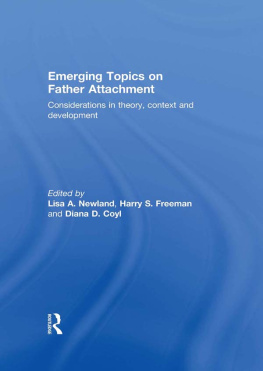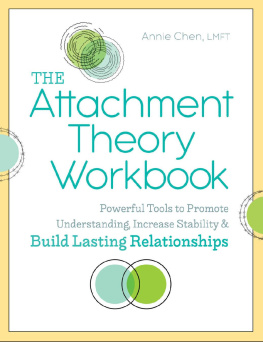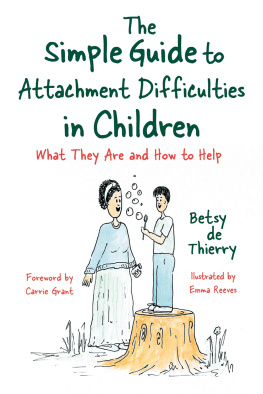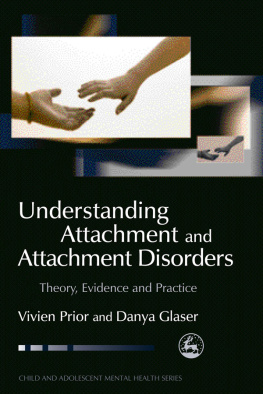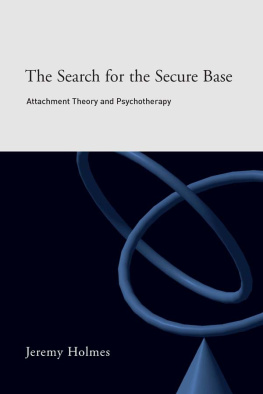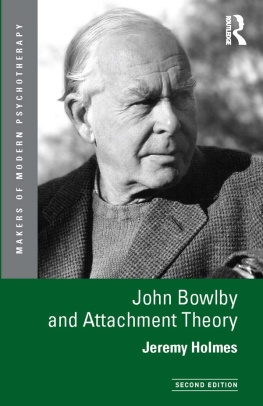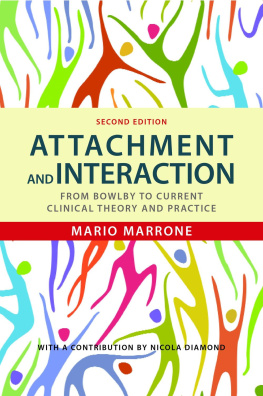Emerging Topics on Father Attachment
This book is the first of its kind to focus specifically on children's attachment to fathers, and explores the connections among fathering, family dynamics, and attachment relationships. It includes theoretical, methodological and research reports written by an interdisciplinary group of researchers from around the globe. The purpose of this book is to familiarize the reader with the conceptualization, measurement and provisions of the attachment bond between children and their fathers, from infancy through young adulthood and across diverse individual, family, community, and cultural systems. Recent empirical findings suggest that new methods of measuring child-father attachment are warranted, and that attachment to fathers may be unique from, but complementary to attachment to mothers. These findings also suggest that attachment to fathers uniquely predicts children's healthy developmental outcomes, and these findings are robust across various contexts, but these predictive relationships are best understood within context.
This book provides a summary of current scholarly knowledge of fathering and attachment, and describes future directions to be explored by professionals, policy makers and practitioners within family services, education, and social work settings. It is also of interest to the general public.
This book was published as a special issue of Early Child Development and Care.
Lisa A. Newland is a professor of educational psychology in the Division of Counseling and Psychology in Education at the University of South Dakota. She teaches courses in child development, statistics, research methods, and child assessment. Her research interests include parent-child relationships and developmental outcomes from infancy to adolescence, fathering and co-parenting, and interactions between home and school settings.
Harry S. Freeman is a professor of educational psychology in the Division of Counseling and Psychology in Education at the University of South Dakota. He teaches courses in child and adolescent development, interdisciplinary education, and research methods. His research interests include attachment in parent-child and romantic relationships, and links between these adolescent social worlds.
Diana D. Coyl is an associate professor of child development in the College of Behavioral and Social Sciences at California State University at Chico. She teaches courses in school-age and adolescent development, family relations, research methods and statistics. Her research interests include attachment relationships across the lifespan, adolescent identity development, couple relations and parent-child relationships.
Emerging Topics on Father Attachment
Considerations in theory, context and development
Edited by Lisa A. Newland, Harry S. Freeman and Diana D. Coyl
First published 2011
by Routledge
2 Park Square, Milton Park, Abingdon, Oxon, OX14 4RN
Simultaneously published in the USA and Canada
by Routledge
270 Madison Avenue, New York, NY 10016
Routledge is an imprint of the Taylor & Francis Group, an informa business
2011 Taylor & Francis
This book is a reproduction of Early Child Development and Care, vol. 180, issue 1-2. The Publisher requests to those authors who may be citing this book to state, also, the bibliographical details of the special issue on which the book was based.
Typeset in Times New Roman by Value Chain, India
All rights reserved. No part of this book may be reprinted or reproduced or utilised in any form or by any electronic, mechanical, or other means, now known or hereafter invented, including photocopying and recording, or in any information storage or retrieval system, without permission in writing from the publishers.
British Library Cataloguing in Publication Data
A catalogue record for this book is available from the British Library
ISBN13: 978-0-415-57459-4
CONTENTS
Lisa A. Newland, Harry S. Freeman and Diana D. Coyl
Inge Bretherton
Lisa A. Newland and Diana D. Coyl
Daniel Paquette and Marc Bigras
Nancy L. Hazen, Laura McFarland, Deborah Jacobvitz and Erin Boyd-Soisson
Aesha John and Amy L. Halliburton
Theano Kokkinaki
Melissa R.W. George, Edward Mark Cummings and Patrick T. Davies
Geoffrey L. Brown, Sarah J. Schoppe-Sullivan, Sarah C. Mangelsdorf and Cynthia Neff
Kelly K. Bost, Eunsil Choi and Maria S. Wong
Kimberly S. Howard
Lisa A. Newland, Diana D. Coyl and Hui-Hua Chen
Mara Cristina Richaud de Minzi
D. Michiels, H. Grietens, P. Onghena and S. Kuppens
Harry Freeman and Tasha M. Almond
Todd L. Goodsell and Jaren T. Meldrum
Fathers in attachment theory and research: a review
Inge Bretherton
This paper provides a brief history of attachment research on fathers as a backdrop against which the other contributions to this volume can be viewed. Empirical research on child-father attachment progressed in four phases and began before Bowlby in 1969 published the first volume of his attachment trilogy. During each phase a different set of questions emerged. Initially, researchers compared fathers to mothers as potential attachment figures. More recent studies emphasize the notion that mothers' and fathers' roles as attachment figures and their influences on child outcomes may be different and complementary. At the same time, calls for a family approach to attachment studies are increasing.
Fathers' role as attachment figures: an interview with Sir Richard Bowlby
Lisa A. Newland and Diana D. Coyl
Sir Richard Bowlby, son of John Bowlby, has carried on his father's work by lecturing and writing on the topic of attachment theory. He has initiated and maintained international connections with researchers, practitioners and agencies in the field of child development, and has produced training videos to more widely disseminate information about attachment theory to professionals working with children and families. In this interview, conducted in London in February of 2009, Richard responded to questions regarding the father's role as an attachment figure, highlighting new theoretical directions and current research. He also addressed cultural influences on fathering and attachment, and offered suggestions for researchers and practitioners.
The risky situation: a procedure for assessing the father-child activation relationship
Daniel Paquette and Marc Bigras
Initial validation data are presented for the Risky Situation (RS), a 20-minute observational procedure designed to assess the father-child activation relationship with children aged 1218 months. The coding grid, which is simple and easy to use, allows parent-child dyads to be classified into three categories and provides an activation score. By having the same parent-child dyads participate in the Strange Situation (SS) and in the RS, researchers were able to demonstrate that the RS appears to evoke specific relationship patterns. Moreover, parental stimulation of risk-taking, the central construct of the RS, was shown to play a significant role after controlling for child characteristics (sex and temperament). These results suggested that the RS has the potential to make a significant contribution to the study of the human relationship.

